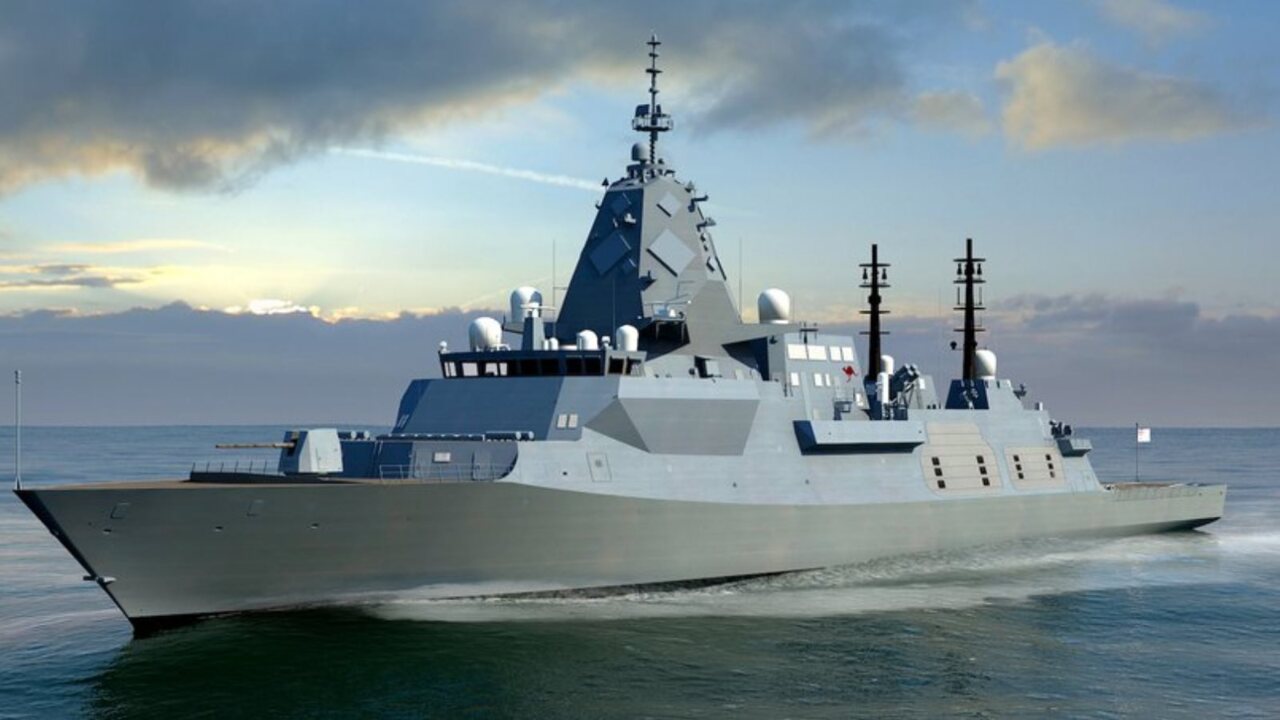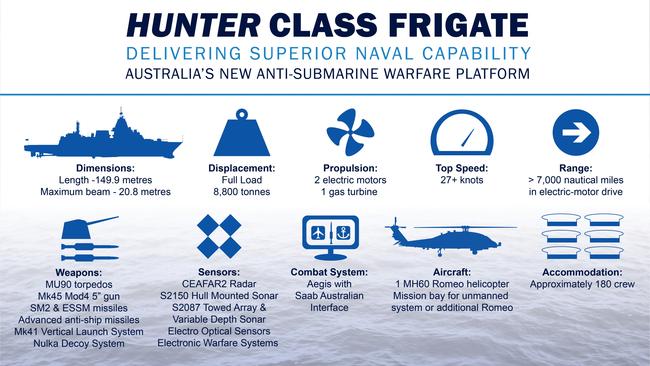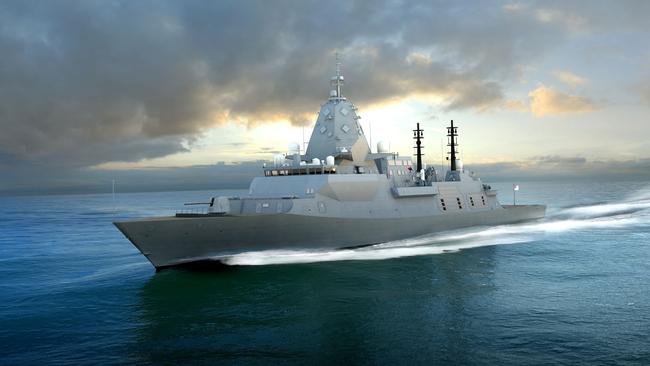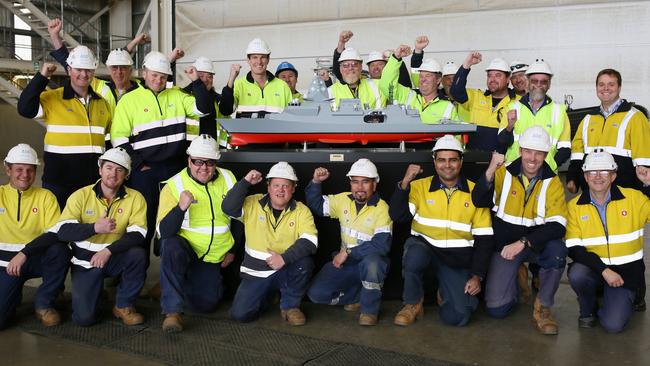ASC workers celebrate their secure future after Future Frigates coup
WORKERS at ASC earned jobs for themselves, their children and their grandchildren on the $35 billion Future Frigates program, ASC chairman Bruce Carter has declared.

SA News
Don't miss out on the headlines from SA News. Followed categories will be added to My News.
- BAE Systems scores $35 billion Future Frigates contract
- Port traders hoping their ship comes in
- On target for a housing boom
- Sailors at sea over training in the West
WORKERS at ASC earned jobs for themselves, their children and their grandchildren on the $35 billion Future Frigates program, ASC chairman Bruce Carter has declared.
If the Adelaide shipbuilders hadn’t achieved such a dramatic improvement in productivity, they would not have been given the job of jointly building nine submarine-hunting warships with BAE. That partnership has secured thousands of SA jobs for years to come, with decades of naval shipbuilding beyond that.
ASC ran into time and budget blowouts building the Air Warfare Destroyers, but managed to overhaul their systems to get up to world-class levels.
“We’ve been working hard on performing to make sure we’re at the table and could be considered (for the Future Frigates),” Mr Carter told The Advertiser.
“If we didn’t perform we wouldn’t be here today.
“It’s the whole workforce. The intellectual capacity from the engineers to the workers on the tools is remarkable.”

About 1500 jobs will be created at the shipyard at Osborne, with another 2500 around Australia. Work will begin on a prototype in 2020.
The fleet will form a critical part of Australia’s naval force, to be joined later by 12 Future Submarines in a time of increasing regional instability.
At ASC yesterday morning Prime Minister Malcolm Turnbull called it a “great day for Australia’s security”.
“So far as we can, we are going to ensure that every dollar that is spent, every job that is created, so far as we can do that, is going to be done here in Australia,” he said.
As work dries up on the Air Warfare Destroyers, there is a gap or ‘Valley of Death’ before work starts again on the next projects.
The hope is existing ASC workers can all be absorbed into the Offshore Patrol Vessel project, which starts this year, then flow through to the frigates and the submarines.
Ultimately the BAE ship was chosen for its advanced stealth technology and submarine hunting capability, although it also helps that Britain is part of the Five Eyes intelligence alliance with Australia.
The Australian version of the Type 26 global combat ship has been designated Hunter class frigates and the first three ships will be called Tasman, Hunter and Flinders.
Defence Minister Marise Payne said they would give the Royal Australian Navy “the highest levels of lethality and deterrence to hunt and kill submarines, to protect our fleets and to protect Australia and our interests”.

The fleet will also work in disaster relief and humanitarian assistance.
They will host 180 men and women, and boast the world-class Australian CEA phased array radar and the Aegis combat system.
Defence Industry Minister Christopher Pyne said his Government had “done the things that have been necessary to bridge that valley of death”.
“It’s a very exciting day and it gives us the capability to defence our nation, so every rivet is a bullet,” he said.
Defence Force Chief, Air Chief Marshal Mark Binskin, said the day was ‘Day Zero’ of the future with a “new generation of ships”.
China’s militarisation of islands in the South China Sea, North Korea’s intercontinental ballistic missiles, and other global tensions are all increasing the instability in the region and the need for Australia’s $89 billion investment in naval shipbuilding.

The industry enthusiastically welcomed the announcement and the certainty it brings. Peak body Defence Teaming Centre said it would “guarantee continuity of employment”. Chief executive officer Margot Forster said involving ASC would lay a foundation for sovereign shipbuilding.
BAE was considered the frontrunner for the frigates despite concerns of an increased risk of delays and cost blowouts because it’s still being developed in the UK; but ultimately the National Security Committee was convinced that those risks could be managed. Centre Alliance Senator REx Patrick said he was “extremely supportive” of the choice but called it a “relatively immature design”.
He pledged the project would be put on his “Senate oversight radar”.
BAE Systems Australia chief executive officer Gabby Costigan said the plan was “to deliver a defence program the likes of which Australia has never seen before”, and recommitted to establishing 1000 graduate positions and apprentices.
“This will be a long-term economic opportunity for Australia,” she said.
British Prime Minister Theresa May said it would boost the UK economy and cement the strategic partnership between the nations.
British Foreign Secretary Boris Johnston said the contract was “proof the UK-Australia relationship is stronger than ever”.


